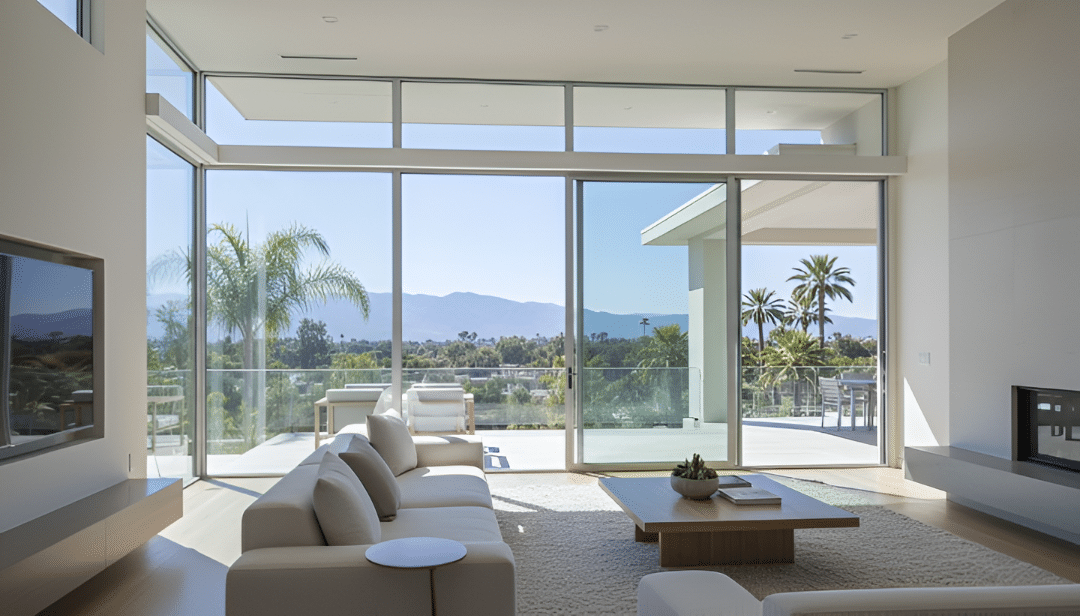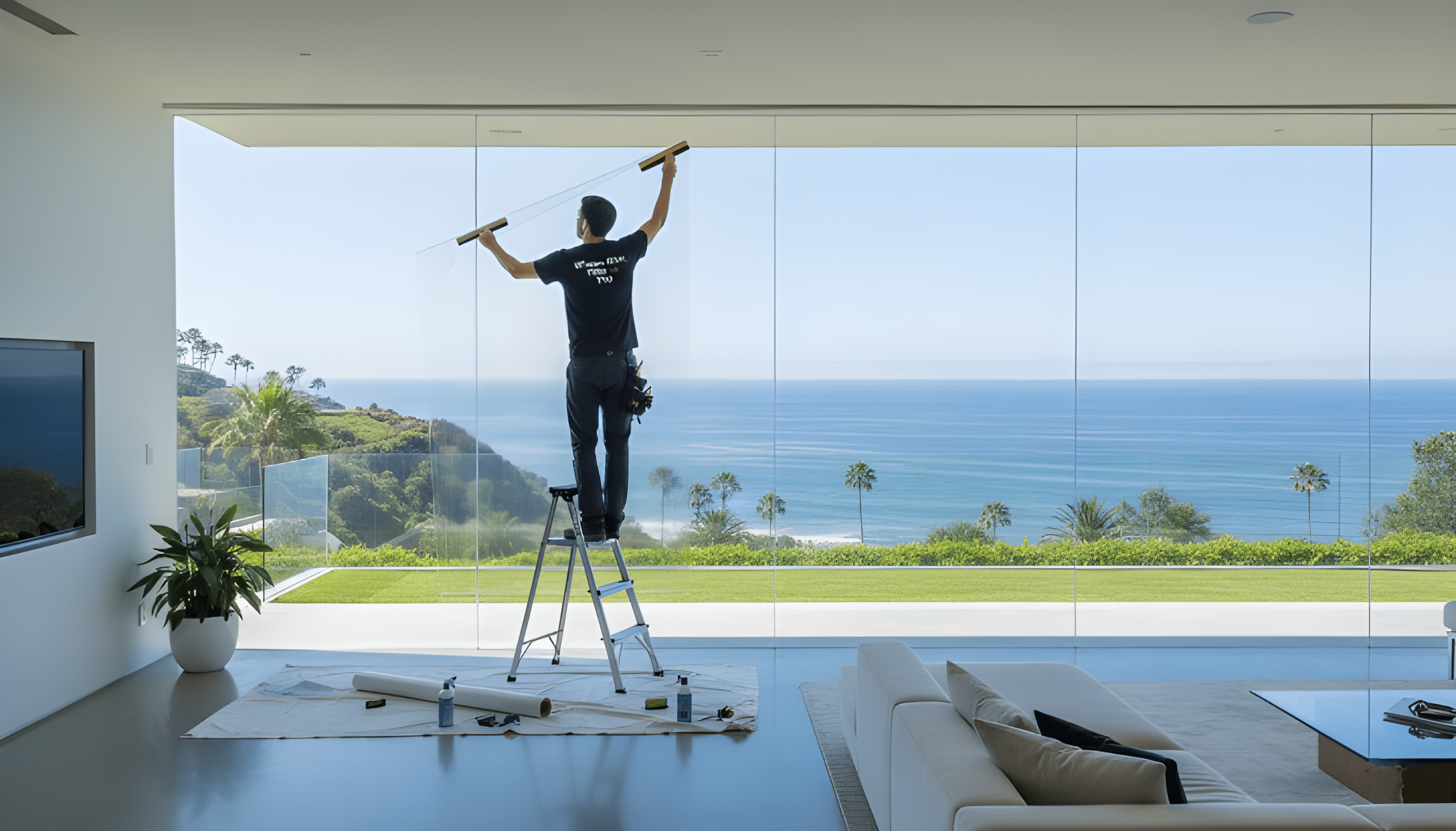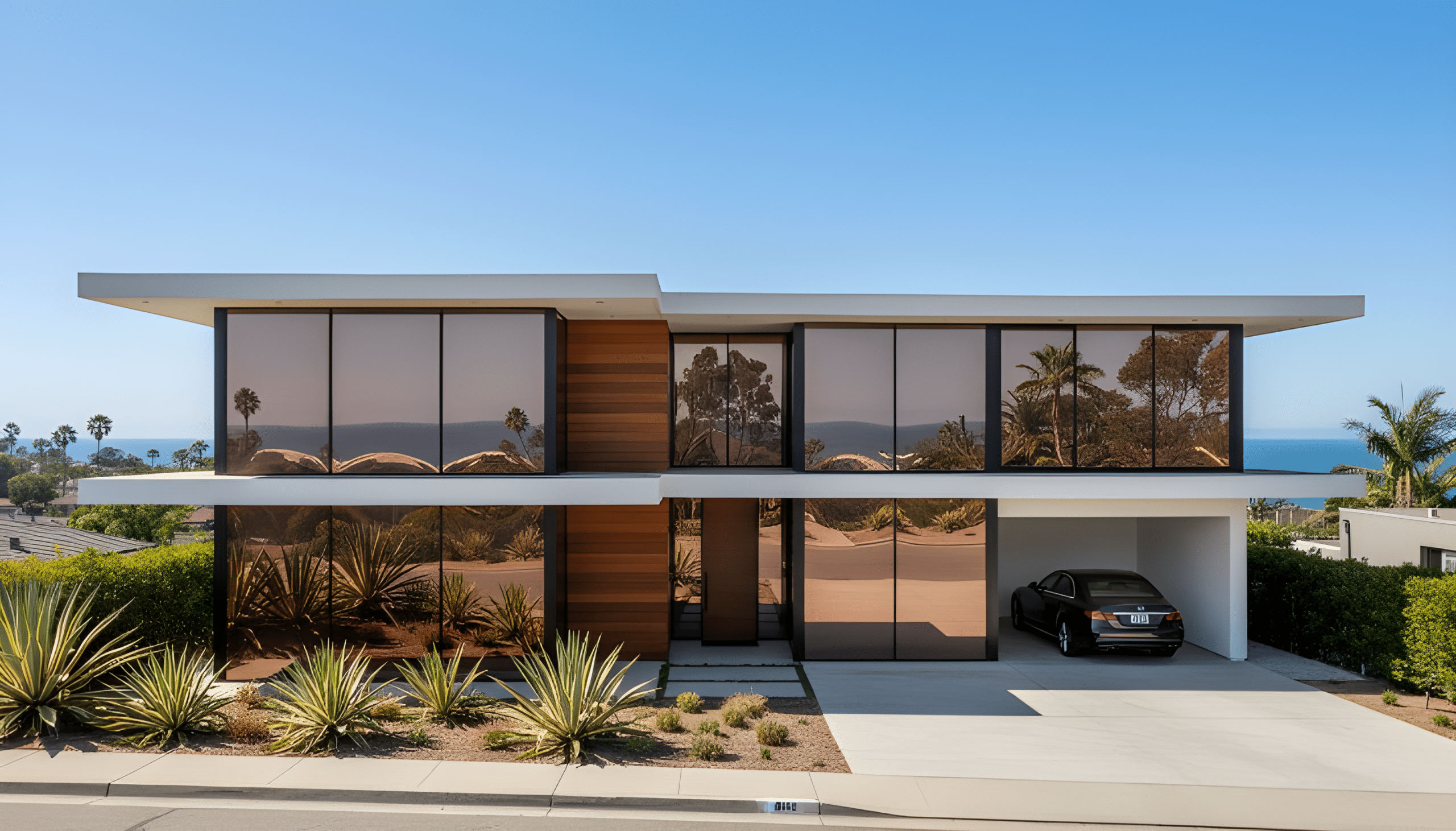Homeowners across San Diego and Southern California are turning to window film to keep their spaces cooler, reduce glare, and protect interiors from harsh sunlight. With year-round sun, coastal glare, and rising energy costs, the right film can enhance comfort and reduce heat without sacrificing natural light. This detailed guide walks you through how the product works, the benefits, installation tips, and long-term care for the best results.
Understanding What Window Tint Film Does
Window film is a thin, durable material professionally applied to interior glass surfaces to control sunlight and heat. While it may seem simple, modern films include layers designed to reject heat, filter UV rays, and enhance privacy.
In Southern California’s sunny climate, untreated windows can allow significant solar heat inside. Film works by reflecting and absorbing excess light and infrared radiation, lowering interior temperatures. This creates a more comfortable living environment, particularly in rooms facing west or south where afternoon heat is strongest.
Beyond cooling benefits, many homeowners appreciate the added privacy. Certain films provide a soft reflective finish during daylight hours, limiting outside visibility while still allowing you to enjoy outdoor views. Others are nearly invisible and focus primarily on energy savings, UV filtering, or security.

Benefits for Southern California Homes
The coastal sunshine, UV exposure, and warm seasons in San Diego and surrounding areas make solar and UV protection a top priority. Window film offers several advantages well-suited to these conditions.
Lower Cooling Bills
Sunny afternoons can push indoor temperatures up quickly. Film reduces heat penetration so air-conditioning systems don’t need to work as hard. Many Southern California homeowners notice reduced utility costs and improved overall home efficiency.
Interior Protection
UV rays can fade flooring, artwork, and furniture. Window film blocks the majority of damaging UV light, helping preserve your interior finishes. This is especially valuable in open-concept homes with large windows, common in coastal and suburban neighborhoods like La Jolla, Carlsbad, Encinitas, and Point Loma.
Comfortable Natural Light
Instead of closing blinds or curtains to manage glare, film filters harsh sunlight while maintaining brightness. Homes with ocean views, hillside exposures, or high-sun living rooms benefit from balanced natural light.
Added Privacy and Security
Frosted and tinted options increase privacy in street-facing rooms or ground-level spaces. Additional security films strengthen glass to reduce shattering during break-ins or accidents, providing peace of mind without altering the home’s aesthetic.
Types of Film to Consider
A variety of films are available, each offering unique benefits. The best fit depends on your goals and home layout.
Ceramic Film
Known for superior heat rejection, ceramic film is popular throughout Southern California. It offers excellent clarity without a reflective finish, ideal for modern coastal properties looking to maintain design aesthetics.
Dyed Film
Budget-friendly dyed film provides basic glare control and privacy. While it may fade over time, it remains a reasonable option for shaded windows or secondary spaces.
Metalized Film
Metalized film blends durability with heat reduction but can create a reflective look. Some communities near the coast prefer non-reflective options to complement natural landscapes, though this choice remains effective for sun-intense areas like inland valleys.
Frosted and Decorative Films
For bathroom windows, entryways, or modern interiors, frosted and patterned options provide a stylish layer of privacy while letting natural light in.

Professional vs. DIY Installation
Homeowners sometimes consider tackling tinting themselves, but for long-term performance and optical clarity, professional installation is often best. Professionals use commercial-grade films, precise cutting methods, and specialized tools to avoid bubbling, creasing, or dust-trapping.
DIY kits may work for small areas or temporary needs, but professional service ensures durability—especially useful in coastal environments where humidity or wind-blown dust can affect installation preparation.
If you do decide to try tinting on your own, choose a calm day with low humidity, clean windows meticulously, and use a spray-solution method to position film perfectly. However, for most homeowners, hiring a technician delivers superior results and warranties.
Proper Maintenance for Long-Lasting Results
Like any home improvement, film requires routine care to preserve its clarity and effectiveness. Fortunately, maintenance is simple and low-cost.
Cleaning
After installation, avoid cleaning windows for about 30 days to allow curing. When it’s time to clean, use a soft cloth and a mild soap-and-water mix. Avoid abrasive tools and ammonia-based cleaners, which may damage the film surface.
Protecting Edges
Wipe carefully around film edges to prevent lifting over time. Using microfiber cloths and gentle strokes helps maintain adhesion and finish quality.
Monitoring for Wear
High-quality films can last 10–20 years with proper care. Films exposed to intense daily sun, such as west-facing windows in beach communities like Pacific Beach or Mission Beach, may age faster. Replacing film periodically ensures maximum energy efficiency and clarity.

Choosing the Right Film and Installer
Choosing the right window film starts with understanding your home: how much sun each room gets, the size and style of your windows, and the look you want to maintain. A reputable window tint installer will provide product samples, walk you through warranty details, and recommend films that perform well in Southern California’s warm, sunny climate.
Make sure to review the full product specs and compare key performance factors such as UV protection, heat rejection, glare reduction, and visual clarity. Whenever possible, check out real installations or ask for references from homeowners in your area to see how the film performs in everyday conditions.
Investing in high-quality residential window film not only improves indoor comfort and energy efficiency—it also enhances curb appeal. In sunny Southern California, choosing the right window tint can make a noticeable difference year-round.
